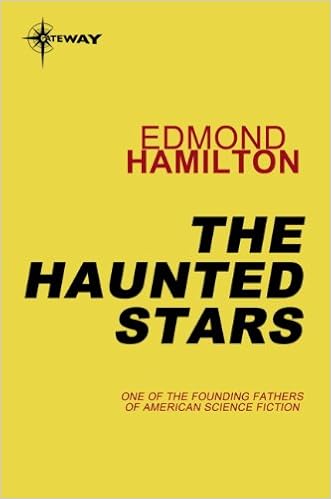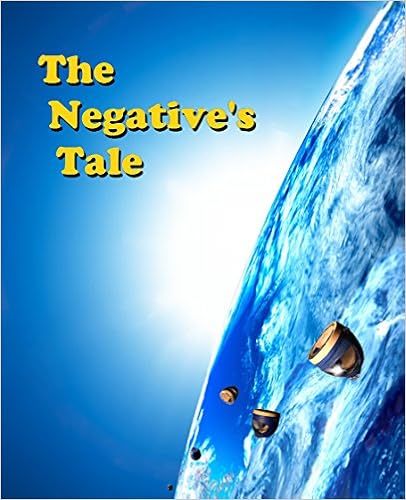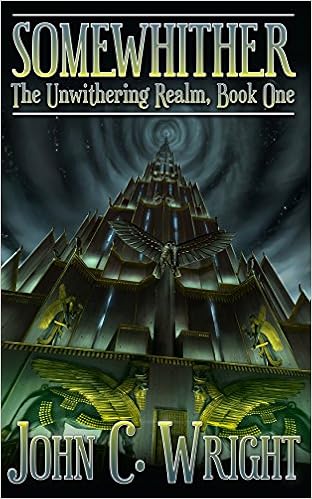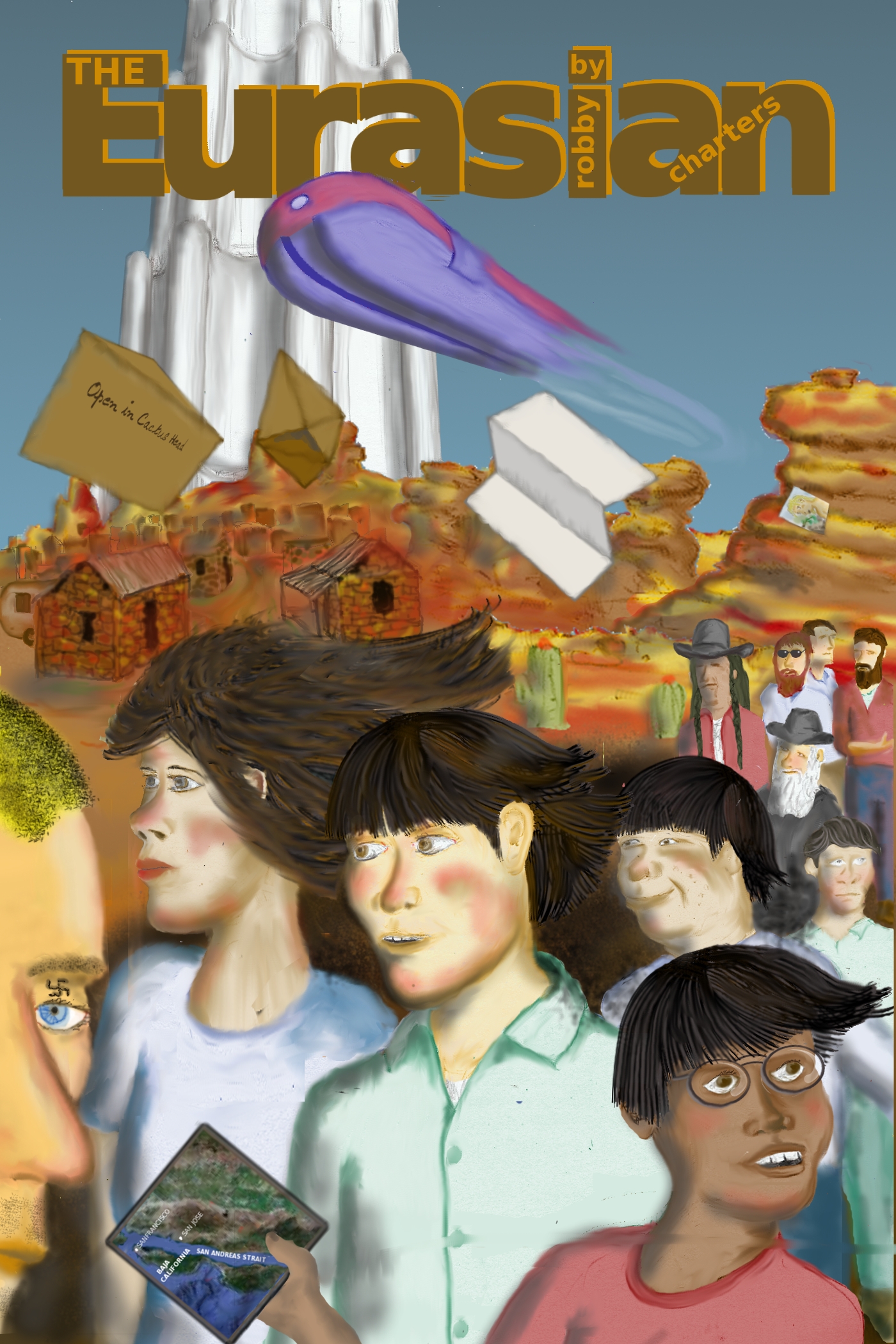
We
know the main character only as Deceneus. Even then, he's not quite
sure of that name, nor in what sense he's “Deceneus”. There was one of
that name much earlier in the history of that planet, and a belief in
another yet to come. It all comes together in the course of the story.
Not
that we really need a name for him; the narrative point of view is from
inside his head, but it's not just a simple first person POV – it's a
stream of consciousness where each two-person dialogue becomes a
three-way conversation, his own thoughts interjected as the third party.
It makes for a unique reading experience, though it may take some
getting used to. But I like literary experiments like that.
We
begin the ride on Earth, where his name isn't Deceneus, nor is there
anything about him that would suggest he's to be a hero of an
other-worldly scenario – except, perhaps, the dream described in the
prologue. We find him wallowing in alcohol and self-pity, having
recently lost his job.
Later we learn that dreams are the way
that “gates” and similar beings test those who might be suitable
recruits for time travel. Deceneus nick-names his “gate”, “Houston”,
after NASA's Houston – as in “Houston, we have a problem”. And, there's
no shortage of problems, which “Houston” has to mother him through in
order to make him ready for his first contract.
Apart from the
“gates”, there are many other intelligent creatures inhabiting the
universe. Most of them far surpass humans in brain capacity (a
refreshing change from most SF I've read), so much so that humans and
other similar races are seen as experiments, or even game pieces in the
“game that's not a game” (you'll come across that phrase). The “game”
involves making adjustments in timelines to affect the future welfare
and/or extinction of whole races. Some beings treat it as a big game,
while others are more concerned about the welfare of the “small brain”
races. Among the more advanced beings are the “Factions”, the ones
playing the leading roles in the “game that's not a game”.
The
most superior being of all is the Universe itself, who makes His
presence known in our galaxy though what's know as the “Black Eye”, the
giant black hole at the centre of our galaxy.
Sometime during the
formation of humanity, a mistake or accident occurred that resulted in
humanity becoming an unusually ambitious and warlike race. It also made
them suitable candidates to be sent to other times and places to
interact with local populations to manupilate their history, as in our
story.
Thus, our main character accepts a contract with a
“Faction” for whom Houston is acting as an agent. After receiving
intensive Samurai training and gaining other skills, he is downloaded
into a human-like body on a planet sometime in our distant past, that's
inhabited by at least four different human-like races, as a member of
one of those races. The local population has reached a level of
sophistication approximating our 19th century. He has also had the local
language downloaded into his brain, as well as an inner “encyclopedia”
of local knowledge. Then, he's placed at just the right place at the
right time to enter society as a hero. Of course, to complicate things,
there's another Faction already at work there with a conflicting agenda.
That
last paragraph is a vast oversimplification: he actually makes several
arrivals on the planet, involving a lot of trial and error. One of those
arrivals is to the even more distant past, when the local population is
in their stone age. Though that story is brushed over very quickly, he
spends quite a number of years of their time teaching them basic
civilisation skills and saving them from extinction. Actually, they did
become extinct because of a wrong choice on his part, but Houston
enables an alternative time-line, and they're saved. All that is a part
of the preliminary learning experience.
The book is full of
creative applications of time-and-space theories and ideas about
alternate time-lines. One more device I should mention is the
“SAT-mine”, a giant spherical force field that has the potential of
totally erasing ones existence, adjusting the time-line so as to totally
exclude that person, and any effect they might have had on anything; so
they were never born. They are meant to be a deterrent against
destroying the fabric of space and time, but too often they're used
against those altering the time-line in ways disagreeable to certain
very powerful forces; which Deceneus is in constant danger of doing. If
he were erased, an entire race of beings on that planet would also cease
to exist because, remember, it was he who saved them from extinction
back during the stone age. Deceneus still wants to save the local “small
brain” races from extinction, which puts him in conflict with the
Factions.
So, that's the premise and the setting of the story.
Because of Florian's narrative style, it took some effort to read
through parts of it without taking a rest now and then, and a few of the
stretches, ones involving local politics, were so long that I began to
wonder if they were going anywhere; but they were necessary to the
story, which was so superb and worth the effort that I'm giving it five
stars.















